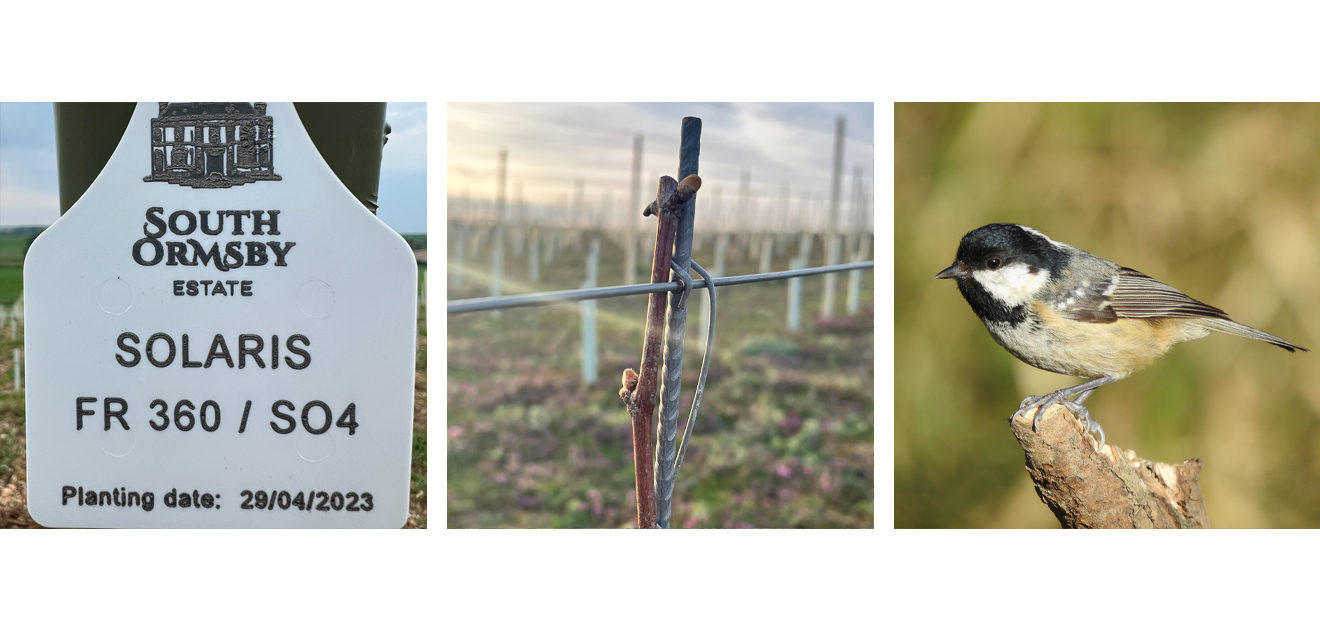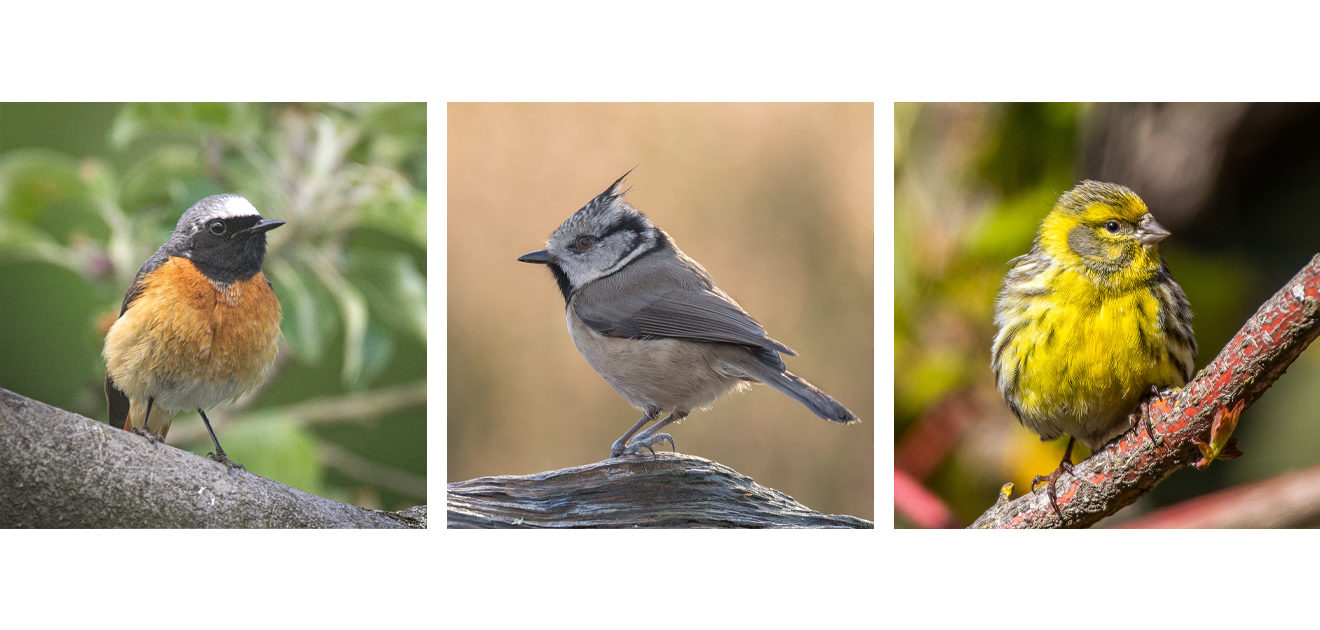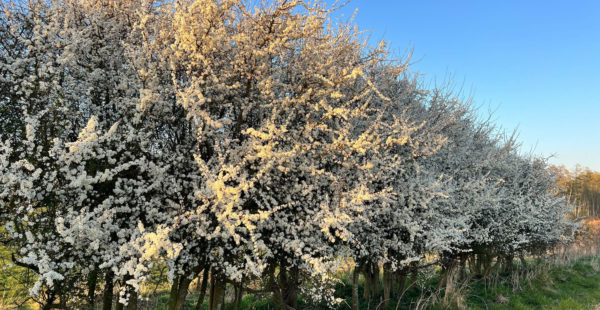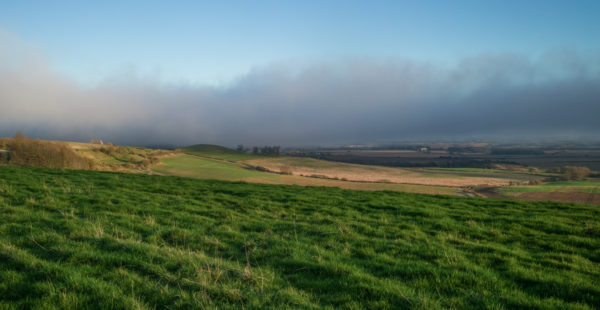A Week on the Estate: Burst Buds, Bustling Hedgerows & Exotic Visitors
Spring is well underway and life is bursting forth wherever we look. High pressure is in charge at the moment and we’re making the most of blue skies and warm weather. While we look set to keep the sunshine until the middle of next week, temperatures are set to drop from a range of 15C-5C at the time of writing to 11C-0C by Sunday.
At the vineyard, the Solaris vines are keen to get started on their growing season and have burst their buds two weeks earlier than scheduled. The Chardonnays are still enjoying a lie-in but we expect they’ll be along shortly. How time flies! Back in the spring of 2023, Vineworks planted 12,600 grape vines to create an 8.9-acre organic vineyard. Two months ago, the Vineworks team returned to tackle year-three pruning, a vital measure that keeps the plants healthy and productive.
If you’d like to get involved in our exciting foray into English wine, we’re offering Vineyard Tours & Tastings as part of the Lincolnshire Wolds Outdoor Festival in May. Click HERE to find out more and book.
Our hedgerows are bustling with nest-building and brimming with song, so it’s high time we updated you on our BirdWeather. Over the month to date, we’ve detected 111 species and logged 96,973 activations. Here’s the top ten for March 2025:
1. Blue tit (12,341) / 2. Robin (9,652) / 3. Long-tailed tit (9,295) / 4. Pheasant (8,503)
5. Woodpigeon (6,875) / 6. Wren (6,373) / 7. Goldcrest (6,221) / 8. Dunnock (4,748)
9. Jackdaw (4,607) / 10. Goldfinch (4,032)
It’s heartening to see the diminutive wren and the even smaller goldcrest holding their own, and the wren punches above its weight when it comes to making its voice heard. An honourable mention goes to the coal tit, placing 11th with 3,462 hits. Favouring coniferous woodland, these small passerines are often outcompeted by their bigger and cheekier relatives, the great tit and the blue tit, so it’s wonderful to see them thriving here. A hat-tip also goes to the redstart, placing 24th with 490 activations. This bonny, orange-rumped songbird is declining across Europe and we’re outside its usual spring-summer range so we’re pleased to see a clear presence on our doorstep.







